8 Ways of Getting a Bigger Pay Rise – Salary Raise Negotiation Tips

Getting a bigger pay rise is an ordeal that most people hate going through. Yet if you don’t ask for a salary increase at least in line with what other companies are paying, chances are you will get paid less than you deserve.
Unfortunately if you are good at your job and create a lot of value chances are you are being paid way below what you could be. Learn how to negotiate a salary increase and you will be a lot better off.
When asking to get a bigger salary, you have to overcome the reluctance of companies to increase their costs. The 8 steps take you through a logical and tested approach to build a compelling case for a pay rise.
Taking these steps will build your confidence and massively increase your chances of success.
8 ways of getting a bigger pay rise
- Work Out Why You Deserve a Pay Rise
- Know Your Worth
- Be Realistic
- Build Your Case
- Picking the Right Time to Ask
- Be Ready to Negotiate
- Have a Plan B
- Help Your Boss Get Signoff
Watch on YouTube
Listen on Podcast
Work Out Why You Deserve a Pay Rise (First Step)
This is a really important step that many people actually don’t do properly. You can’t think in terms of yourself – for instance
- I have been working another year therefore I deserve a pay rise
- Inflation is x %, therefore I am getting paid x% less than last year, and therefore I should be paid more
These thoughts may all be true and yet these arguments just don’t work. You have to think in terms of the value you have created for the company. For instance:
- Where have you saved the company time and costs? Pretty much everyone can achieve cost or time savings in their job.
- Where have you increased revenues, either directly or indirectly?
- Where have you beaten targets that have been set.
- How have you increased visibility and understanding which has led to lower costs or higher revenues?
- How have you specifically helped the company be successful.
These are all framed in terms of how you helped the company. Get specific and include numbers in how you frame the value you have created. Really think about your role and how you create value for your company.
As soon as you are clearly creating more value that your salary, you are in a great negotiating position to get a bigger pay rise.
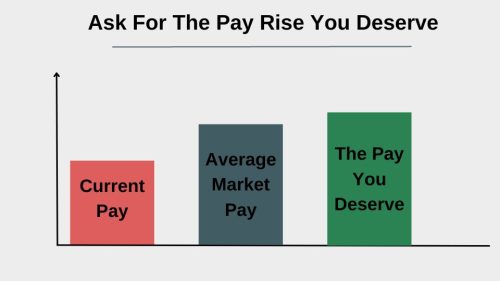
The second way to get a bigger pay rise is to Know Your Worth
Having worked out all the internal measures of your worth – i.e. your achievements for the company – work out how the jobs market values your role.
Go to Reed.co.uk or a similar jobs website and find job adverts for what you do. Be as specific as you can. Look past the job title at
- The responsibilities and accountabilities of the role
- Tasks, activities, problems, and projects the role needs to deliver against
- Who the role reports
- The dynamics of the company and where exactly it is based
Match up your role as closely as possible to a range of jobs being offered by other companies. Compare the salaries and take a note of the average and the range of salaries.
Keep copies of all the job adverts you use so you can provide these to your manager.
A complimentary option is to speak to a friendly recruitment consultant that you already have a relationship with and ask them to provide you with their views of what salary you are worth on email.
Use third party market data to demonstrate your worth.
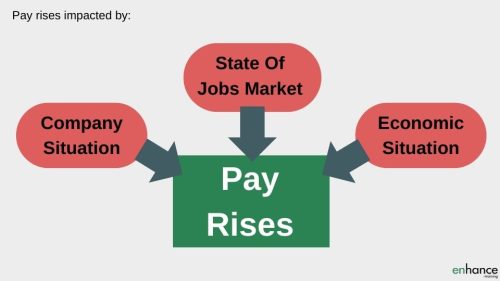
Be Realistic – The Third way for getting a bigger salary
Keeping realistic adds to your credibility when asking for a pay rise. Your request is harder to ignore or dismiss.
The company situation, the economic situation, and the state of the jobs market all impact pay rises and I think it is sensible to consider each.
If the company is doing very well, the company can afford to make larger pay rises. If the company has little profit or cash, then pay rises full stop may be in doubt.
Externally, if there are many jobs being offered and few people to fill them, getting a bigger salary is a lot easier than if there are many people looking for jobs and few job opportunities. Your ability to go elsewhere to get a bigger salary is a key factor from the company’s viewpoint when considering pay.
Show that you are being realistic and have considered these factors when asking for a pay rise and you should be taken more seriously.
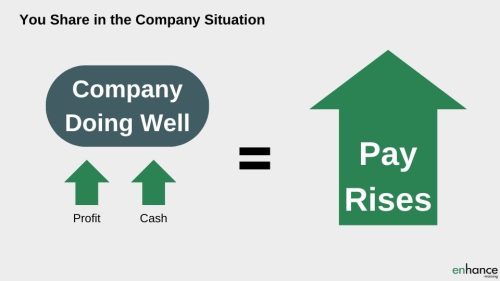
The fourth way for getting a bigger pay rise is to Build Your Case
Use the information you have gathered so far to build your case for a pay rise in writing. Your boss will need this to get signoff for your pay increase – we cover this more later.
Create a one to two page document setting out
- all the reasons why you should get a pay rise
- the actual figure you are asking for – don’t provide a range and set it higher than your minimum
- all the market evidence that you are worth the figure you are asking for
Get a friend outside of work to look the document over; to make sure it makes sense and is well structured. Keep the document focused on how you have created value for the company.
Don’t forget to think of all the elements of your pay
- salary
- bonuses
- benefits
- share options etc
The hardest area to get an increase in is your salary in my experience because from the company’s point of view, if you do a rubbish job you still get paid.
Once you have your document finalised, you are ready to speak with your manager.
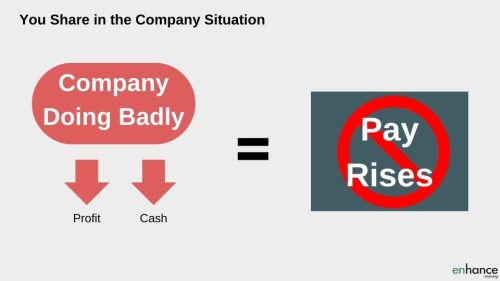
Picking the Right Time to Ask (Fifth Step)
Don’t ambush your manager with pay rise requests. Always signal that you want to talk about pay before asking.
A good way to do this is to send your pay rise document to your manager and ask for a one-on-one meeting so you can discuss your pay with them.
Always ask your manager for a bigger salary in private. Never do this in public.
Don’t send your request for a meeting over on Monday morning or Friday afternoon. No manager likes to get an additional problem to deal with during these times.
After you have requested to speak to your manager about pay, you should then follow up to arrange a specific one-on-one meeting or bring up pay in your next regular one-on-one meeting.
Always give your manager time to think about your pay rise and to do a bit of research for themselves.
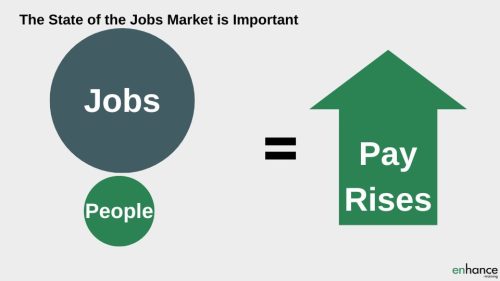
The sixth way for getting a bigger pay rise is to Be Ready to Negotiate
If your manager just says yes, you probably asked for too small a pay rise. Expect to negotiate on:
- the amount of the pay rise
- what form it takes i.e. annual salary, bonus etc
- when it is effective from
Your minimum amount should the figure that you would be happy earning and feel is a fair exchange for the value you deliver for the business. Always ask for more than your minimum, so that you have room to negotiate and come away happy with the outcome.
Don’t provide an excessively high figure to try to anchor the negotiations in unrealistic territory.
For more advice on negotiating, take a look at “7 Actions to Negotiate Effectively at Work”
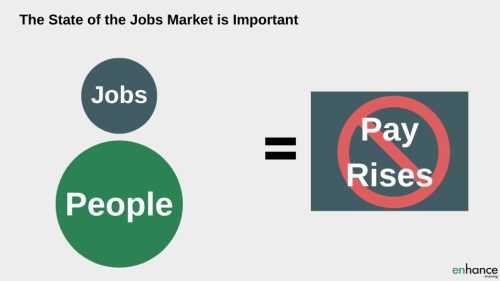
Have a Plan B – The seventh way for getting a bigger salary
If you get a no after asking for a pay rise, or a salary increase that you feel is below your worth, you have 3 main options:
- Accept the situation
- Keep fighting for higher remuneration
- Get a job offer paying more from another company
Consider switching your pay rise requests to increase your bonus, holiday, health cover, pension, or other benefits such as training and development.
In my experience, getting salary increase is much harder than getting increases in performance related pay such as bonuses. There can be many rational and irrational reasons why managers or HR block increases in salary. Focus on all your other elements of pay and see what increases you can negotiate.
Another option is that you get a job offer paying significantly more from another company. You can then use this to force a higher salary and stay with your company. Or you can move companies.
The cost of recruiting, training, and bedding in a new employee will nearly always be a lot higher than the salary increase that you are asking for. Just bear in mind if you have to fight hard to get the salary increase you deserve, you may be at the wrong company.
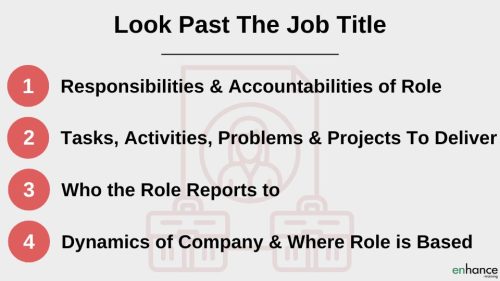
Help Your Boss Get Signoff – The eighth way to negotiate a salary increase
A common situation is that your manager supports your pay rise request but struggles to get this signed off by their managers.
By providing a document with the reasons you deserve a pay rise – written in terms of how the company benefits – you are arming your manager with hopefully a compelling case.
Support your manager in getting the pay rise request through. Find out what the objections are blocking sign-off and who is doing the blocking. Work with your manager to address the objections and speak to individuals that are blocking the rise.
If you are a good performer, there is nearly always an acceptable compromise to be reached.
Negotiate and be flexible to a point. If building a compelling case and negotiating fails, then get a job offer from another company paying more.
The company’s willingness to compromise and reach a solution is a very strong indicator for how much you are valued. If you are not valued enough, find a company that values you a lot more. Read about 5 signs you should quit your job. You and your career will be better off in the long run!
in summary
We have gone through 8 ways for getting a bigger salary at work. The better the job you are doing, the more likely you will be able to successful ask for and get a bigger salary and or other benefits.
If you don’t ask you don’t get.
Companies will usually try to get away with paying their staff as little as possible while still retaining their employees. Ask for what you deserve.
To recap, the 8 ways of getting a bigger pay rise are:
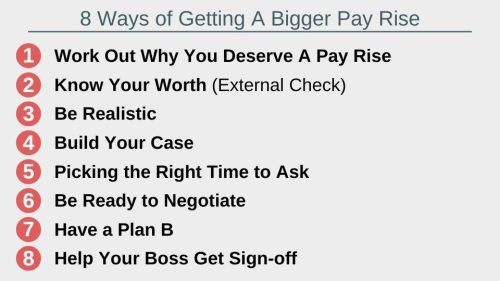
Getting paid for the value you deliver at work is not easy. If you don’t ask at work you don’t get. This is balanced with not annoying your boss with unreasonable pay demands.
These 8 steps gives you a great framework to build your confidence in your own worth and work out what the market rate is for the role you do. You can then structure a reasoned and evidenced approach which is hard for managers to ignore.
Ask for the pay rise you deserve!






